Home > FEP Virtual Conference Speakers
Our expert speakers bring a wealth of knowledge and experience to the forefront of this field, offering invaluable perspectives on addressing the complexities of First Episode Psychosis.

Kristin Neff (she/her) is currently an Associate Professor of Educational Psychology at the University of Texas at Austin. She is a pioneer in the field of self-compassion research, conducting the first empirical studies on self-compassion more than twenty years ago.
She has been recognized as one of the most influential researchers in psychology worldwide. She is author of the bestselling book Self-Compassion and her latest book is Fierce Self-Compassion: How Women Can Harness Kindness to Speak Up, Claim Their Power, and Thrive. Along with her colleague Chris Germer, she developed the empirically-supported Mindful Self-Compassion program and founded the Center for Mindful Self-Compassion. They co-wrote the best-selling The Mindful Self Compassion Workbook. For more info go to self-compassion.org.
Positionality Statement
I believe that honoring and respecting the humanity of our self and others is key to mental wellbeing and social justice. I've been researching self-compassion for the past twenty years and have taught people how to be more self-compassionate all over the globe. Self-compassion entails being mindful of our pain, being kind to ourselves because we hurt, and framing our experience in the light of the shared human experience. When we dehumanize ourselves or others through harsh judgment and disconnection, we add to the suffering in the world.
More recently, I've been exploring the fierce and tender sides of self-compassion. Tender self-compassion is about acceptance and fierce self-compassion is about taking action to protect ourselves from harm. Both are needed, but gender role socialization teaches those identified as boys that they shouldn't be too tender and girls that they shouldn't be too fierce. By embracing self-compassion, we can become whole and authentic while we stand up for our human rights.
These are principles that I live by. I research and teach self-compassion because I am a flawed human being living in a difficult and unjust world. As a white heterosexual cis-gendered woman, fierce self-compassion has helped me call out patriarchy in books such as "Fierce Self-Compassion: How Women Can Harness Kindness to Speak Up, Claim Their Power and Thrive." Tender self-compassion has helped me to acknowledge my privilege and my lack of understanding of the others' experiences of oppression. I firmly believe that self-compassion is key to our ability to create a more inclusive and healthy world.

Amanda Bowman, LCSW-S, PSS (she/her) is a clinical social worker, certified peer specialist supervisor, and WRAPⓇ facilitator, using her professional and lived experience with mental health challenges to promote person-centered practices in behavioral health care. Coming from direct social work practice and administrative leadership within the public mental health system, she joined Via Hope in 2013, where she served as Recovery Institute Director until 2023. In this role, she oversaw the development and delivery of organizational change programs, which included statewide initiatives to support the implementation of person-centered planning, peer support services, and trauma-responsive work environments. Now the owner of Sidecar Consulting, Amanda uses her passion for participatory learning methods to facilitate collaborative learning events and serves as a subject matter expert for programs designed to support change within and across agencies. She has called Austin home since 2000 when she moved from Louisiana to obtain a Master’s degree at UT. Outside of work, you may find Amanda with her family hiking the Barton Creek Greenbelt or enjoying live music.
Positionality Statement
I began my career in 2000 supporting people experiencing a sudden change in their world because they were seeing, hearing and/or believing things that others around them were not, labeled with “psychosis” and desperate to find answers. Reflecting on my 13 years working at the state psychiatric hospital in Austin, I’m struck by the range of relationships that I had with people - oftentimes honored to connect with someone in a way that was pivotal to their recovery and appreciated for my work but perhaps just as often, confronted by people admitted against their wishes, insisting that their actions had been mistaken or misunderstood (this was occasionally exactly the case and allowed me to play the role of detective). I have enjoyed about 20 years of supporting the professional work of others, as a supervisor, trainer, and consultant.
The biggest influence on this work has been the life disruption I, myself experienced as a young adult before my career began. Although I was equipped and eager to accomplish the goals I’d mapped out for my future, life quickly hit the pause button. Almost everything that I took for granted was put on hold while I navigated my way through significant mental health challenges. I was, and continue to be, humbled by how small and insignificant I felt within my own body, but also as a young, female “patient” having to represent my choices to a much older, well-meaning and typically not person-centered array of professionals. I remember meeting many “expert” adults who claimed with great confidence to know my future, what was best for me, and only now do I fully appreciate (at 48 years old) how wise I was for my age, that I was okay with uncertainty and knew to steer clear of those who were not. My struggle to meet my needs during that time was both privileged, in that I had access to a variety of private services, which gave me choice that many are not afforded, and my struggle was also blessed, in that I found the support of others navigating similar situations, although formal peer support wasn’t an option in Louisiana at the time. Humility, failing forward, authenticity of self and story, humor (especially during times of intense darkness), and a willingness to try to connect with others even when I’m unsure of what I have to offer - these are the qualities that have led to human connection in my life and what I try to promote and bring to my work.

Amy Pierce (she/her) has been working in the Peer Movement in the State of Texas for almost two decades. She currently serves as Recovery Institute Associate Manager at Via Hope by serving as a subject matter expert on the implementation of peer services and other recovery-oriented practices. She has extensive experience in the peer support sector, having started the first peer support program in the state hospitals in Texas, implementing peer support programs in the community as well as the Program Coordinator for a transitional peer residential housing project. Prior to Via Hope, she was the CEO of Resiliency Unleashed, an international training and consulting company. Amy is a peer, and family member, with both mental health and addictions experience. Amy was previously Chair of the PAIMI Council in Texas and currently serves on the Disability Rights Texas Board of Directors.

Ruth Shim, MD, MPH (she/her) is the Luke & Grace Kim Professor in Cultural Psychiatry and Professor of Clinical Psychiatry in the Department of Psychiatry and Behavioral Sciences at the University of California, Davis. She also serves as Associate Dean of Diverse and Inclusive Education at the University of California, Davis School of Medicine. Dr. Shim received an MPH in health policy from Rollins School of Public Health at Emory University and an MD from Emory University School of Medicine. She is a member of the Board of Trustees of the Robert Wood Johnson Foundation and the Scientific Advisory Council of Bring Change to Mind, an organization co-founded by actress Glenn Close to reduce stigma and discrimination associated with mental illness. She serves on the Research and Evaluation Committee of the California Mental Health Services Oversight and Accountability Commission.
She serves on the Editorial Boards of JAMA Psychiatry, Psychiatric Services, Community Mental Health Journal, and American Psychiatric Publishing, and is co-editor of the books, The Social Determinants of Mental Health, and Social (In)Justice and Mental Health. Dr. Shim is an at-large member of the National Academies of Sciences, Engineering, and Medicine Forum on Mental Health and Substance Use Disorders. In 2021, she was the recipient of a NAMI Exemplary Psychiatrist Award and the UC Davis Health Deans’ Award for Excellence in Mentoring. She was named a Top 20 Black Change Maker of 2023 by The Sacramento Bee. Dr.
Shim provides clinical psychiatric care in the UC Davis Early Diagnosis and Preventative Treatment (EDAPT) Clinic.
Positionality Statement
I identify as a cisgender, straight, able-bodied Black woman. As a physician who specializes in psychiatry, I recognize that this role grants me significant privilege in my life. As this presentation focuses on issues related to first-episode psychosis, I have experience in understanding the impact of psychosis on patients that I care for, and in family members, but I do not have personal lived experience with psychosis. My research focus considers the impact of oppressed identities and intersectionality on mental health outcomes. My interest in this work relates to my personal experiences with intersectionality and oppression, but I also acknowledge that many others experience intersectionality in different forms and impacts than my own.
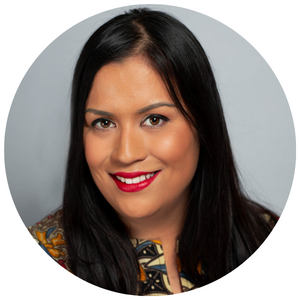
Leah (she/her) is a British-Indonesian immigrant who moved from England to the United States in 2016. As a psychiatric survivor, domestic violence survivor, former foster youth, and a person who has previously experienced homelessness, Leah is working towards a world free of oppression and injustice. She believes that promoting psychological and social approaches to psychosis is equity in action towards this vision.
Trained as an Occupational Therapist, Leah primarily worked in clinical mental health settings until she came to the United States, where she found a home working in nonprofit leadership. Leah has worked in an array of settings with people diagnosed with psychosis, including working in early intervention in psychosis, assertive outreach, a mental health recovery café, a high-secure forensic hospital, and homeless emergency shelters. She currently serves as Executive Director of the US Chapter of the International Society for Psychological and Social Approaches to Psychosis.
Positionality Statement
I am a mixed-race English, Irish, and Indonesian cis-gender, bisexual woman, who has survived the psychiatric system, homelessness, the foster system, rape, and childhood domestic violence. From a background of trauma, I now inhabit a space of privilege through my vocational and academic achievements. My expertise comes from my lived experience, my training as an Occupational Therapist, and the lessons I have learned from organizing and program building.
Philosophically grounded in existentialism, I recognize the inherent complexity of human experiences
and reject the notion of absolute truth. Instead, I champion the importance of honoring individuals as
the foremost experts of their own narratives and the architects of their own meaning. Through this lens, I acknowledge my limitations of understanding but commit to listening, learning, and uplifting others in order to contribute to the collective pursuit of justice and equity in the mental health system and beyond

Apurva Bhatt, M.D. (she/her) is a child, adolescent and adult psychiatrist and Clinical Assistant Professor at Stanford University School of Medicine. Her role spans the General Adult Psychiatry Division, Child Psychiatry Division, and Center for Youth Mental Health and Wellbeing Division. Dr. Bhatt specializes in early psychosis evaluation and treatment. She currently provides clinical care in both the Lucille Packard Children’s Hospital Child INSPIRE early psychosis clinic and the Stanford Health Care INSPIRE clinic. She contributes to early psychosis program development in California (through EPI-CAL) and nationally (through PEPPNET/Westat). She is also co-chair of the American Academy of Child and Adolescent Psychiatry Adolescent Psychiatry Committee and Early Psychosis work group.
Positionality Statement
I identify as a South Asian American woman, and am a first generation American, child of immigrants. I am a physician who specializes in child, adolescent, and adult psychiatry with additional expertise in pediatric psychosis and prevention of adolescent suicide by firearms. My life experiences in supporting individuals recovering from psychosis inspired me to pursue a career in this field. As someone who primarily works with children and teenagers, I believe it is important to create a positive first experience related to health care decisions so young people can be empowered over time to participate in their healthcare decisions, preparing them for their transition to adulthood.
In my clinical work, when I meet an individual and their family for the first time, I always start out by planting seeds of hope: “My goal is for you to live a happy and healthy life in the community, where you can achieve your goals.” This message centers us as fellow humans who are connecting on a common shared goal. I believe this message of hope is incredibly important for young people experiencing/recovering from psychosis. I feel blessed to be able to do this work, and consider myself to be a lifelong learner, continually discovering ways on how I can improve as an individual working in this evolving field.
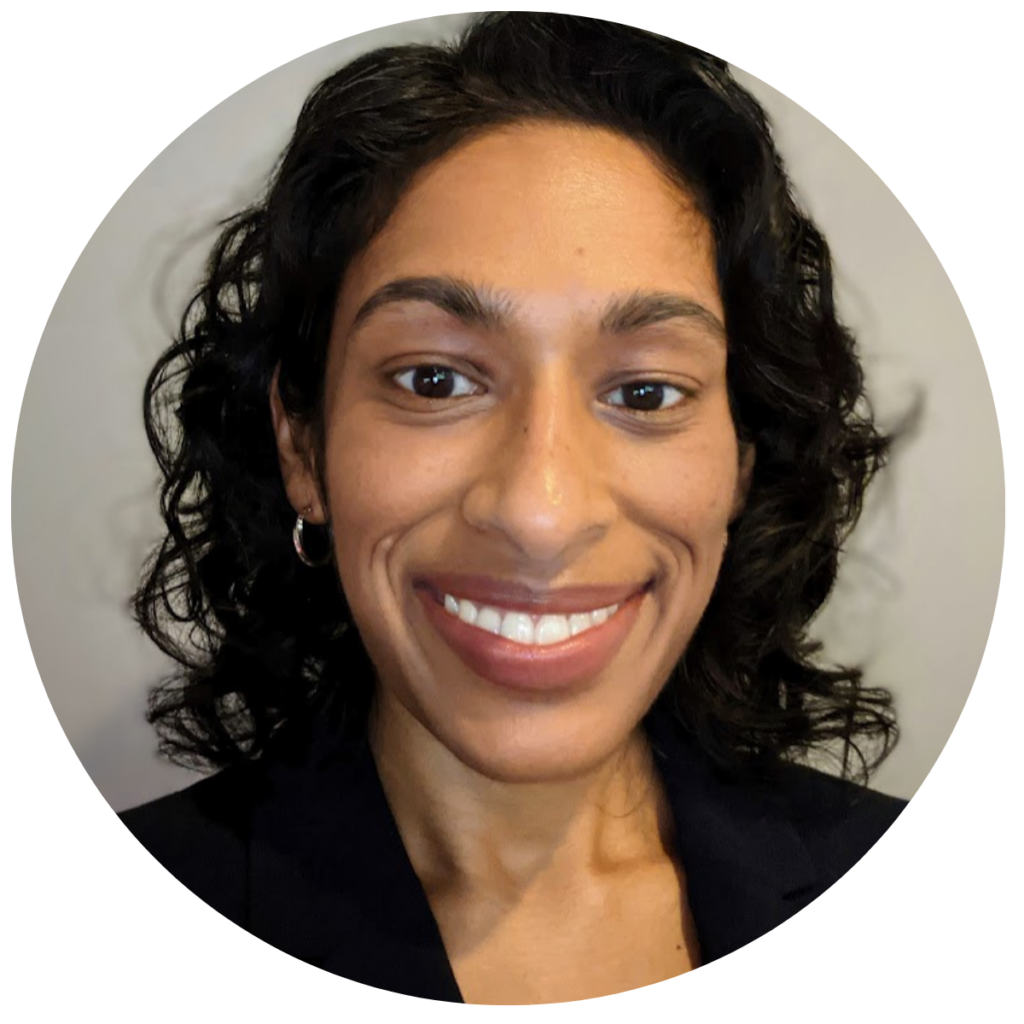
Preethy George, PhD. (she/her) is a Principal Research Associate at Westat with a doctoral degree in clinical psychology and more than 20 years of experience in mental health, early intervention, and public-sector behavioral health services for youth and young adults. Her work spans technical assistance, program evaluation, and the translation of clinical research to inform practice and behavioral health policy. Dr. George has played key roles on federally funded projects focused on early psychosis for the Substance Abuse and Mental Health Services Administration (SAMHSA), the National Institute of Mental Health (NIMH), and the Assistant Secretary for Planning and Evaluation (ASPE), which have involved working with early psychosis researchers, providers, advocacy groups, and service recipients and their families to advance early intervention services across the country. She currently serves as the Project Director for the National Training and Technical Assistance Center for Early Serious Mental Illness (ESMI TTA Center).
Positionality Statement
I identify as a first-generation, Indian-American woman, who is the daughter of immigrants. That experience has given me a deep respect and appreciation for the challenges people experience when navigating cultural situations that are different than their own. I have a PhD in clinical psychology and was drawn to this field because I feel strongly about contributing to research, evaluation, and technical assistance that is supportive of youth and young adults with mental health conditions and their families. I feel fortunate to be working in the area of early psychosis and learning from others in this field who support recovery and well-being for young people.
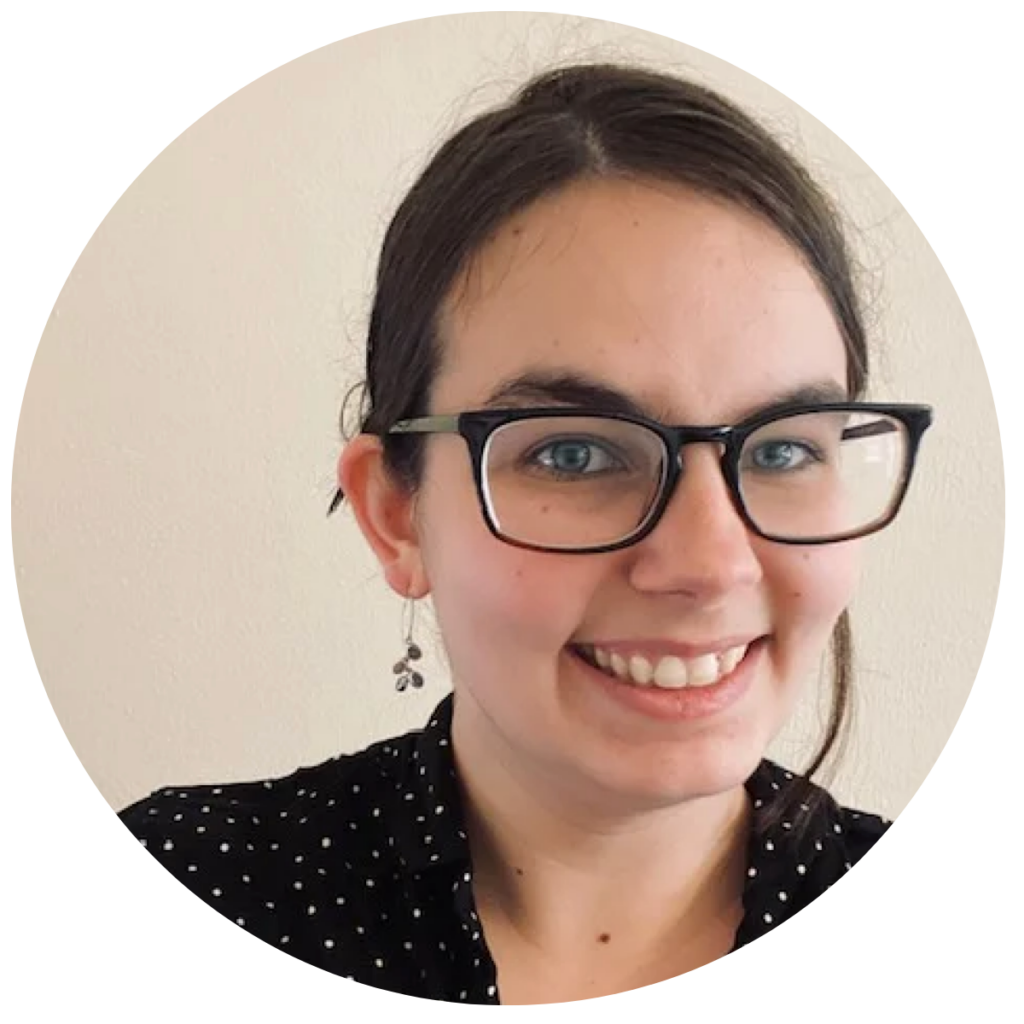
Shannon Pagdon, BA (she/they), is a joint masters/doctoral student at the University of Pittsburgh School of Social Work. She earned her Bachelor of Arts in Forensic Psychology at John Jay College of Criminal Justice and is a former Research Coordinator for EPINET New York State Psychiatric Institute. Shannon also does ongoing work with the EPICAL network. She is someone with lived experience of psychosis and has a background in peer support. She is the co-creator of Psychosis Outside the Box and is currently serving as the Vice President of lived experience research within IEPA. Within her graduate program, she studies under Dr. Nev Jones and is currently focusing on a qualitative in-depth examination into peer support nationwide.
Positionality Statement
I am a dedicated researcher and mental health advocate with a lived experience of psychosis, PTSD, and ADHD. Combining my academic pursuits in a joint MSW/PhD program with my background as a peer supporter in early psychosis, I bridge the gap between research and lived experiences.
My unique perspective, shaped by an intersectional identity that includes being bisexual and gender non-conforming, allows me to bring a nuanced understanding to the field of mental health. I am deeply committed to advocating for non-coercive, person-centered approaches that empower service users. Additionally, my experience growing up primarily in a rural area has highlighted the disparities in access to Coordinated speciality care (CSC), further fueling my passion for advocating for equitable mental healthcare.
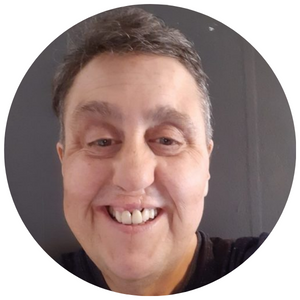
Cindy Hadge is an internationally recognized educator providing training and consultations to mental health providers, worldwide who are looking for innovative ways to approach voice-hearing, extreme states, and trauma. She draws from her own experience of childhood trauma, experiences in the traditional mental health system, and navigating her own voices, visions, and unusual beliefs. She is passionate about developing and facilitating healing spaces for those going through these kinds of experiences and their families. Cindy is a pioneer in developing Hearing Voices Network USA Family and Friends Groups in 2019 and has been an HVN USA trainer since 2012. Cindy is the Lead Trainer for the
Wildflower Alliance as well as an Intentional Peer Support trainer.
Positionality Statement
Cindy identifies as gender non-conforming and has presented both as Marty (male) and Cindy. Spirituality is a strength for Cindy, her own concept of a Loving Higher Power, has provided meaning, purpose and possibility in her life. Her work is centered in supporting people to become the experts of their own unique experiences, and the context of those experiences, in an effort to explore and make meaning of those experiences.
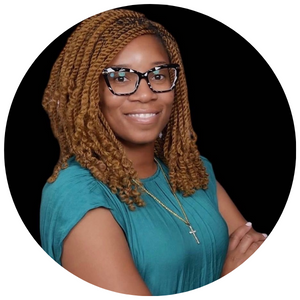
Sharhonda Webster, LPC, (she/her) is a visionary leader who is passionate about serving and empowering vulnerable and at-risk individuals. She is an advocate for individuals who have been impacted by systematic oppression and committed to building environments where everyone has the opportunity to thrive. Her focus is on creating and building leaders who will positively impact the world, and being able to walk alongside them as they flourish. One of her favorite quotes that she lives by is “The ultimate measure of a man is not where he stands in moments of comfort and convenience, but where he stands at times of challenge and controversy.” Martin Luther King Jr.
She have been afforded the opportunity to embark upon a journey and answer the call to serve those struggling with the complexities of mental health at Tri-County Behavioral Healthcare for the past three years. She embraced the challenges of individuals experiencing homelessness and mental health as she led the Supported Housing/PATH Team, to now, coordinating the Coordinated Specialty Care Team. She currently has the pleasure of providing therapy to individuals experiencing the onset of psychotic symptoms. The opportunity to break down barriers, and foster an environment of transparency, trust, and cohesion for the amazing CSC team she leads, along with offering solace and support to those who need it most at Tri-County.
Sharhonda Webster, LPC is the Coordinated Specialty Care Team Lead at Tri-County Behavioral Healthcare.
Positionality Statement
Human connection is within the biological makeup of all humans. We are connected by connection. I am drawn to the work in the early psychosis community because of the connections I build with each individual I serve and encounter, along with the difference made with early intervention. I serve individuals in the early psychosis community at a local mental health authority. My connection to the population as a whole at a local mental health authority is my experience with marginalization, systematic oppression, and stigma.
I am a Black female therapist, who has the privilege to serve individuals in the lower socioeconomic class which is very purposeful and personal to me because I grew up in that social economic class. I understand the struggles, challenges, and obstacles one may face based on their economic status. Furthermore, being able to help someone find hope, build skills, and become the best version of themselves in ways that are meaningful to them is an honor for me. On the other hand, being a Black leader who empowers, uplifts, builds, and who takes pride in watching other phenomenal professionals grow and thrive is a dream come true. The work and service of a leader is near and dear to my heart. I lead a very diverse team of professionals, and I have the privilege to see each of them grow and succeed which is all made possible through human connection.
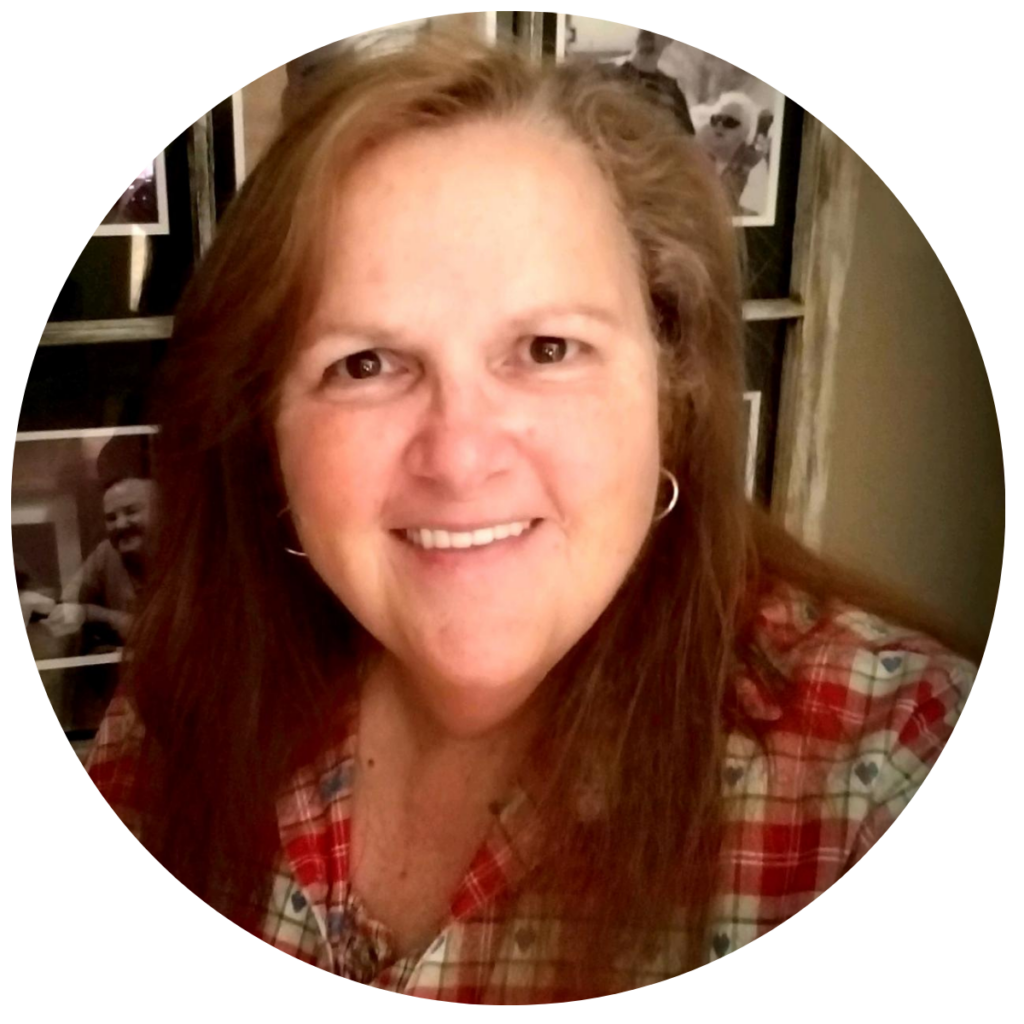
Linda C Williams, LPC (she/her), Clinical Program Coordinator at the Spindletop Center in Beaumont, Texas.
I received my calling to help others who experienced mental health issues in 2007 where I was part of a wonderful ministry serving the homeless called the Archangels Motorcycle Ministry. There I would speak face-to-face with those who needed mental health assistance but all I could do was provide them with resources. I wanted to do more so I went back to college to finish my educational journey.
I started my professional journey working in mental health in 2014. I began my service work with children and adults with IDD ending in 2016, then with adults in the Crisis Stabilization Unit (CSU) ending 2018, with the Mobil Crisis & Outreach Team (MCOT) ending in 2021, and finally with the FEP unit known in the company as the Early Onset Program (EOP).
Positionality Statement
As a white cisgender woman with an LPC, I am a person who has experienced privileged social positions in which my ever-evolving theoretical disposition and orientation have been and will continue to be shaped by and through bidirectional systems of culture. All of my work is invariably influenced by my positionality including leadership style, the identification and coordination of clinical policy and processes, as well as therapeutic modalities and application. Complex trauma, as experienced in my microsystem, has afforded me the opportunity to understand the impact of trauma on development and mental health throughout the lifespan including diagnosable mental disorders as identified by the ICD and the DSM. Subsequently, my lived experiences have both cultivated and inspired my passion, dedication, and commitment for working with and helping individuals overcome and achieve overall health and wellness.

Ron Unger (he/him) is a licensed clinical social worker, therapist, and consultant specializing in CBT and related approaches for psychosis. For the past 2 decades he has been providing seminars on therapy for psychosis, working with the intersection of trauma and psychosis, and addressing cultural and spiritual issues within treatment for psychosis, at universities and mental health facilities across the United States and internationally. His teaching aims to inspire and guide people to relate to the essential humanity in otherwise puzzling extreme states of mind, and to reveal possible pathways people can take toward recovery and healing. He chairs the Pacific Northwest Branch of ISPS-US, and maintains a blog at
recoveryfrompsychosis.org
Positionality Statement
I grew up experiencing poverty, child abuse, bullying, and hostility aimed at my emerging gay identity. While struggling to cope with this l wandered into some confused or psychotic mental states, though unlike many I found what I needed to recover without undergoing psychiatric treatment. My adult life was less chaotic and more influenced by the privilege associated with being a white mostly cis-gendered non-disabled college educated male. I seek to use the awareness drawn from the complex intersections within my own journey to help me understand the positionality of others and to help create a world that better provides opportunity and justice for all.
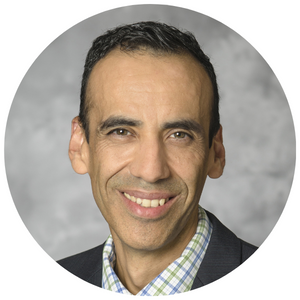
Gustavo Perez, PhD, (he/him) is a clinical associate professor at the University of Arizona, College of Medicine, Psychiatry Department where he directs the Early Psychosis Intervention Center (EPICenter). Dr. Perez's priorities include: Supporting young adults with serious mental illness in building a life of connection and purpose, advocating for families, preparing the next generation of providers to offer best diagnostic and intervention practices, and engaging with local communities to reduce stigma and increase opportunities for youth in different stages of psychotic disorder.
Dr. Perez is a licensed psychologist and a certified trauma specialist. He completed his doctorate degree in school psychology at the University of Texas at Austin and his clinical psychology internship at the University of New Mexico in Albuquerque. Prior to joining the University of Arizona, Dr. Perez was the chief psychologist at the Pima County Juvenile Detention Center in Tucson AZ.
Positionality Statement
I am a psychologist working with young people experiencing serious mental illness. I am a cisgender male, an immigrant from Mexico, in my early 50s, living in Southern Arizona where I direct a first episode psychosis integrated program. A core belief guiding my work is that all human beings have the capacity to build a life of purpose, meaning and connection.
As a young psychologist, I aspired to be an expert, to be the person in the room with the best answer. This approach kept me from truly seeing people in the context of their relationships and circumstances. It was also a way to ignore my own wounds.
Twenty years later I think of myself as a community member working for inclusion, respect and opportunity for all people, in particular those living in the margins. There are days I feel encouraged with the results of collaboration. Other times, I feel overwhelmed with the challenges in front of us. I am aware that even with my best efforts I will continue to have blind spots in my work and advocacy. I no longer pretend to have the answers. Rather, I value working alongside others to promote a more just and inclusive society. In this work, I am grateful for the wisdom of people's lived experiences and I seek to remain in touch with my own vulnerability and growth.
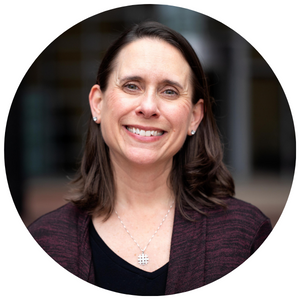
Jennifer Baran-Prall, LCSW (she/her) is a Project Manager with the Texas Institute for Excellence in Mental Health at the University of Texas at Austin, Steve Hicks School of Social Work. She is a Licensed Clinical Social Worker with a profound commitment to aiding individuals in their recovery from trauma. Throughout her career, she has demonstrated a strong passion for serving populations at risk, particularly focusing on suicide prevention and mental health support for Veterans. She brings invaluable experience as a former Suicide Prevention Coordinator for the Veterans Health Administration, where she played a pivotal role in developing and implementing programs to enhance mental health services for Veterans. Her expertise extends to trauma recovery, crisis intervention, and community outreach initiatives, to also include significant work in supporting individuals experiencing First Episode Psychosis. change and fosters resilience in the communities she serves.
Positionality Statement
I am a white, cisgender woman in my early 50s. As a Licensed Clinical Social Worker, I have been privileged to serve individuals experiencing trauma and other mental health challenges, both as a clinician and as an administrator addressing systemic and organizational needs within the mental health system. Growing up in the Midwest and witnessing family members cope with severe mental health conditions without receiving adequate care profoundly impacted me. This personal experience has fueled my commitment to advocating for others and ensuring that their needs are heard and addressed.
As a parent of adopted twins who are ethnically different from me, I have learned and grown in my understanding of diversity and inclusion. I continue to center actively listening to others, recognizing the value of the knowledge I receive when I have the opportunity to learn another person’s story.
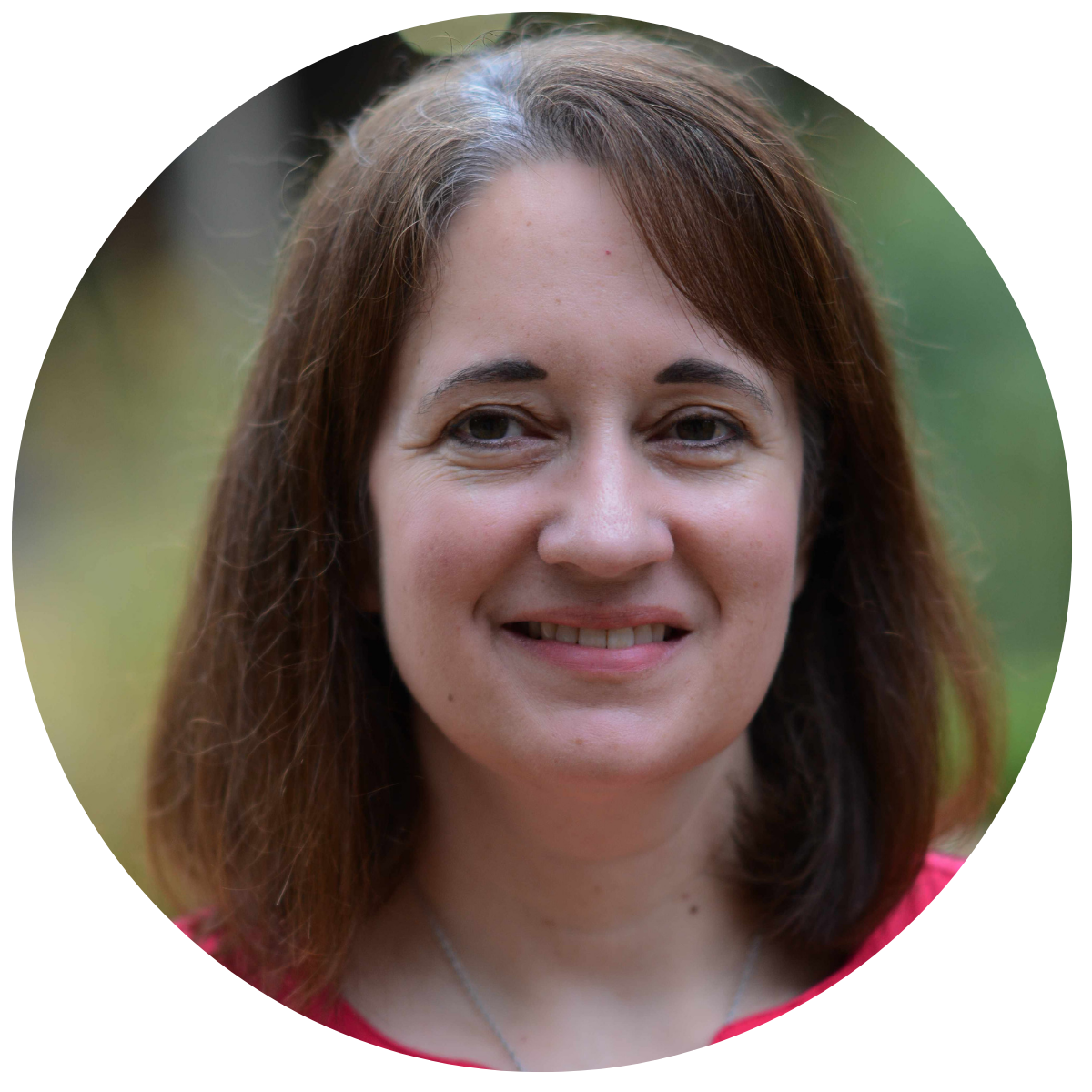
Molly Lopez (she/her) is Director of the Texas Institute for Excellence in Mental Health, a licensed clinical psychologist and a research associate professor at the University of Texas at Austin, Steve Hicks School of Social Work. Her research interests include mental health services, child and adolescent service systems, the implementation of evidence-based practices, and trauma informed care. She has led a number of initiatives focused on enhancing the
effectiveness of systems that interact with children and youth with mental health challenges and their families. Dr. Lopez has partnered with a variety of systems to implement or evaluate the implementation of school-based mental health services, trauma-informed practices, suicide prevention and wraparound approaches. Dr. Lopez currently serves as a director of the South Southwest Mental Health Technology Transfer Center and a principal investigator on several federal and state-funded initiatives.

Dr. Samantha J. Reznik (she/her) is a Research Assistant Professor at the Texas Institute for Excellence in Mental Health. She completed her PhD in Clinical Psychology at the University of Arizona with a focus on psychophysiology and intervention science. Driven by her passion for improving mental health services, she focuses on dissemination and implementation research to increase access to and quality of care for individuals with serious mental illness (SMI) and other underserved populations, including early intervention for psychosis. Her clinical training included a Health Resources and Services Administration (HRSA)-funded Underserved Track clinical internship at University of Kansas Medical Center as well as an advanced clinical fellowship in rehabilitation and recovery for SMI at VA San Diego Healthcare System/University of California San Diego. She is a co-investigator on the Advancing Early Psychosis Intervention Network in Texas (EPINET-TX) project and collaborates with the South Southwest Mental Health Technology Transfer Center to increase access to evidence-based services and training for coordinated specialty care for early psychosis in Texas. With a commitment to research, training, and clinical expertise in SMI, she strives to create meaningful change in mental health services, ensuring individuals receive the recovery-oriented care they need and deserve.
Positionality Statement
As a White Cis Woman with a PhD, I am a person with predominantly privileged social positions whose research focuses on individuals who have more marginalized social positions. I am alert to the potential for harm in my doing this work and reflection on my positionality is critical for me to mitigate such potential harms. Having a positionality as only provider rather than receiver of psychosis services, I am mindful that lived experiences may or may not align with the evidence base of the thereapeutic approaches that I use. I work to honor each individual’s lived experience in therapy by sharing and collaboratively building case conceptualizations and partnering in setting goals and techniques. My family’s multigenerational legacy of trauma motivates a passion for social justice, and positionality has helped me to collaborate across difference and center lived experience and marginalized perspectives to advance equity.
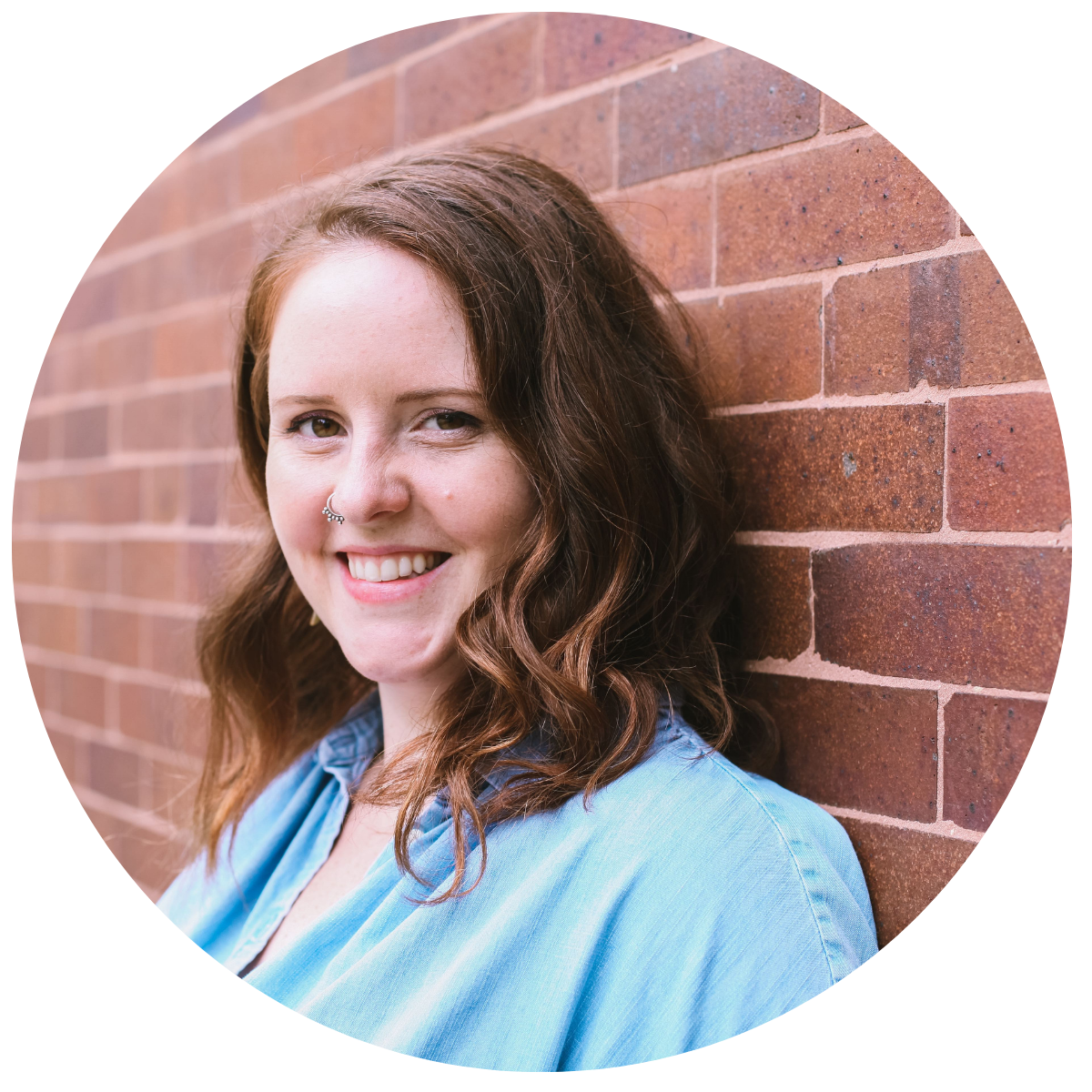
Darcy Kues, JD, (she/her) is a Project Manager with the South Southwest Mental Health Technology Transfer Center and the Addiction Research Institute, where she writes curricula focused on peer support and recovery services. She has over 8 years of experience in curriculum development, grant writing, and program coordination for peer support services and recovery-oriented behavioral health. Darcy has developed trainings on reentry peer support, youth and young adult peer support, trauma responsiveness, peer support supervision, LGBTQ affirming services, and more.

Natalie Fikac, Ed.D. (she/her) serves as the Senior Administrative Program Coordinator at the South Southwest MHTTC. Her work focuses on supporting state education agencies and schools to shape comprehensive school mental health systems across Region 6.
Her educational experience began over 25 years ago as an elementary school teacher, reading interventionist, professional school counselor, campus administrator and district level administrator. Previously she served at the Texas Education Agency as the Project AWARE State Coordinator. Natalie holds a Masters in Education in School Counseling and School Administration from Sam Houston State University and a Doctorate in Educational Leadership from Lamar University. Her research interests include school mental and behavioral health, systems change, leadership, wellness, resiliency and self-compassion.
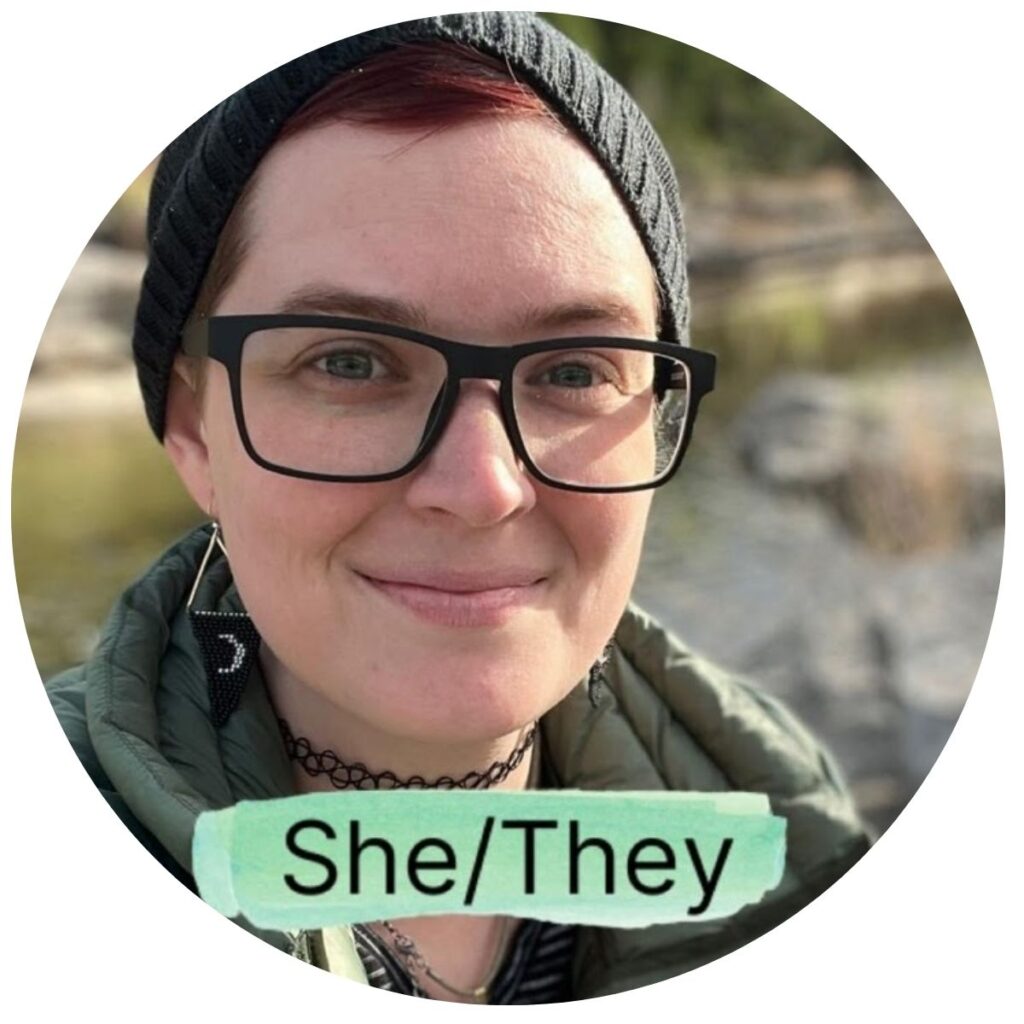
Jessi Davis (she/they) is a seasoned Program Coordinator with a rich history in the Peer Support, Mental Health, and Substance Use Recovery sectors. Renowned for their work in Youth and Young Adult Peer Support, Jessi has made significant contributions to training, technical assistance, and leadership development. Their credentials include a range of Peer Specialist certifications and training. Jessi served on the Board of Directors for the National Association of Peer Supporters for over four years, including holding positions such as Secretary, Vice President, and President.
In their current role at the South Southwest Mental Health Technology Transfer Center, Jessi provides comprehensive support, technical assistance, and training to the Peer Workforce across five states and numerous tribal communities within Region 6. Their career has been largely dedicated to Youth and Young Adult Peer Support, with a vision for a future where all young people have access to the support they need.
Jessi has facilitated a variety of training sessions and events which include Introduction to Neurodiversity, Peer Support Ethics, Strategic Planning Retreats, Peer and Family Partner Networking events, and Youth and Young Adult Peer Support. Jessi has also consulted with organizations across the country, and has been called on as a Subject Matter Expert by SAMHSA for multiple projects. Their commitment to these initiatives underscores their dedication to the field and their ongoing efforts to foster growth and development within the community.